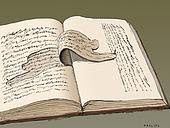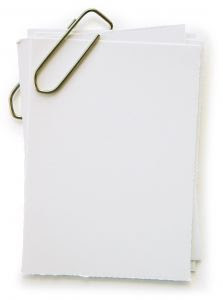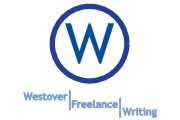
As part of the Look Like a Pro! Series, I’m proud to present the very first (of hopefully many) Writer Spot Interview. I’ll probably come up with a catchier title than that, but that’s beside the point.
Today’s interview features freelance writer Susan Johnston, better known to some blog readers as the Urban Muse. Her website was recently highlighted as an example in personal branding by JibberJobber, a site specializing in networking and marketing yourself.
On to the interview!
You were recently named JibberJobber's Pick of the Month for March. What has that been like?
I'm flattered. It has definitely boosted my daily traffic, but it's too soon to tell if those readers will become regulars.
Your website is relatively new; tell us a little bit about setting that up and working through Vista Print.
I logged onto VistaPrint to order new business cards and saw that they were offering a free month's trial of their web hosting service. After upgrading to the personal package to the basic business package, tweaking one of their templates and setting up a domain-based email, I was sold. No coding required and very friendly customer service.
Your 5Q's interviews have featured a number of highly regarded writing professionals. How has that helped you?
It's a win-win situation. The writers get to promote their books and other projects, and I get a virtual informational interview to pick their brains about publishing. It's also a draw for other aspiring writers who read my blog. I've even gotten free copies of books before they're available in bookstores (called galleys), which is great because I'm not making big bucks (yet).
Why did you decide to start a blog?
I was encouraged by one of my writing mentors, and it took off from there. She stressed that it's important to specialize, rather than trying to blog about everything and that advice has served me well.
The photos on your site look great. Were they done professionally?
Yes. I hired Rachel at Decent Urban Lifestyles (http://www.decenturbanlifestyle.org), and I think she did a fantastic job of highlighting my personality in a flattering and fun way without being too staged.
What led you to get your photos professionally done?
I'm also a semi-professional singer/actress and I needed new headshots. I met Rachel at a women's networking event and LOVED the photos on her blog and website. She does a great job of capturing life's little moments in unexpected ways. Plus, she's also trying to establish her photography business, so her prices were reasonable and I wanted to support an emerging artist. After I got my 8 x 10's printed in black and white, it occurred to me that I could do so much more with them, so I posted them on my website and use them anytime an editor requests a contributor photo.
Why did you choose to put your photo on your website and not your blog?
When I first started my blog, I wanted to be cautious about online safety and that was a clever way to show my personality without showing my face to potential predators. I know it sounds a little paranoid, but young women can't be too careful with that sort of thing. After a few months, I realized that wasn't as much of an issue as I'd expected, in part because my name is so common, but I stuck with the cartoon because it had become my "urban muse" alter ego. I chose photos because I wanted something more professional-looking for my website, which is where I send editors first.
Where did you get your first clip?
I think it was a book review in Teen Voices, a glossy magazine that helps teenage girls boost their self-esteem through writing. I also wrote for my junior yearbook and my high school and college newspapers, but I'm not sharing those clips on my website. Those were limited edition!
Do you have any advice for new writers that are just starting out?
Yes. If you really want to write for a certain publication, be willing to take on assignments that might not initially interest you, because it's important to build up your clips and build relationships with editors. Once you've done that you can afford to be choosier. But you may also discover that you like writing about the topic. I've written a ton of articles on entrepreneurship and personal finance. I love it, but it wasn't originally what I set out to write.
What, in your opinion, separates the professional writer from the amateur?
It's about attitude. A professional attitude means not making silly mistakes like forgetting to spell check and fact check or demanding that your editor put your article on the cover. It's also about knowing your worth as a writer and not accepting projects that don't benefit your overall goals as a writer. If you're not getting paid and the clips aren't very professional-looking, you need to take a look at why you're doing it. If it gives you personal satisfaction, that's great, but it won't help reach your professional goals.
I'd like to thank Susan for taking the time for this interview, and would heartily recommend that you check out her blog, The Urban Muse.












 Scrabble
Scrabble 
 Apples to Apples
Apples to Apples
 Scattergories
Scattergories 





